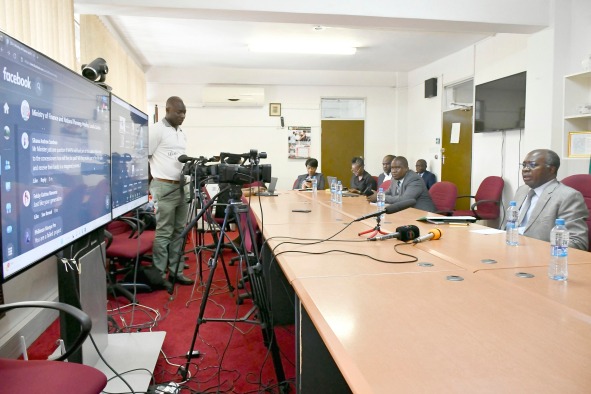IMF Report Highlights Strong Economic Growth Outlook for Zambia
The Ministry of Finance and National Planning has reaffirmed its commitment to open engagement with the public, noting that feedback from citizens plays a valuable role in shaping policy implementation and economic management.
In a statement issued at the close of the week, the ministry said that while it may not be possible to respond individually to all comments, contributions from the public were taken seriously and would continue to inform programme performance, monitoring, and evaluation. It pledged to hold occasional online question-and-answer sessions to provide stakeholders with updated information on finance, the budget, public debt, government investments, and other economic affairs.
The ministry also drew attention to the latest International Monetary Fund (IMF) Country Report No. 25/225, published on 5 August 2025, which outlines Zambia’s encouraging economic trajectory.
According to the IMF:
- Economic Growth: Real GDP growth reached 4.0% in 2024, driven by mining, ICT, and services. Growth is projected at 5.8% in 2025, rising to 6.5% by 2027, supported by agricultural recovery, mining expansion, and service sector development.
- Inflation Moderation: Headline inflation is expected to fall to 11.1% by end-2025 from 16.8% in early 2025, aided by lower global fuel prices, improved rainfall, and food supply recovery.
- Fiscal Improvement: Zambia recorded a primary fiscal surplus of 2.9% of GDP in 2024, surpassing programme targets. Public debt is forecast to decline from 123.9% of GDP in 2024 to below 100% in 2025 for the first time in over seven years.
- Foreign Exchange and Reserves: Gross international reserves rose to $4.7 billion in May 2025, equivalent to 4.5 months of imports. Foreign direct investment reached 3.8% of GDP in 2024 and is expected to remain steady or grow further.
- Social Sector Reforms: The government has maintained free access to primary and secondary education and sustained social cash transfers at K400 per month, with increased support during the drought period.
- Governance and Transparency: Key legislative reforms, including the 2016 Public Audit Act and State Audit Commission Act, have been enacted. The government is also publishing quarterly debt bulletins, tax expenditure reports, and procurement results.
- Financial Sector Stability: The banking sector remains sound, with a capital adequacy ratio above 24%, liquidity at 49% of total assets, and a decline in non-performing loans to 3.6%.
The Ministry reiterated its dedication to fiscal discipline, transparency, and inclusive growth, stressing that economic gains must translate into tangible improvements in the lives of Zambians.



